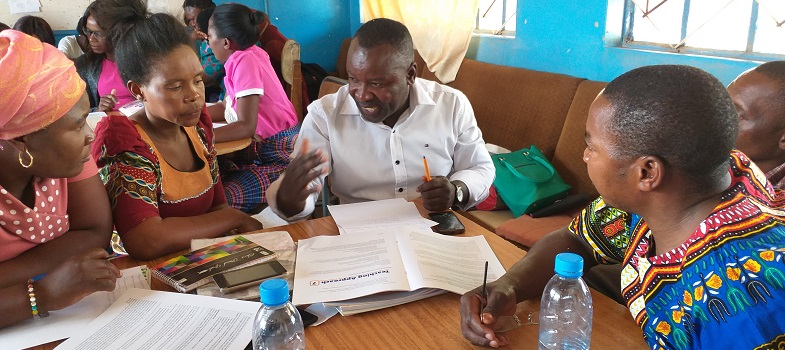Training guide
4. Supporting reading and writing across different subjects
4.2. Assessing literacy skills
If you are a specialist teacher, you may find that some of your learners cannot read and write very well and need support with basic literacy to help them access the curriculum.
All teachers need to be aware of the literacy challenges that learners face, so it is important to create opportunities to assess literacy. This requires careful planning.
Activity 5.7: Teaching and assessing literacy skills across the curriculumIn your TGM, working with a partner, look at your teaching plans for next week.
|
When you have taught a lesson, it is important to reflect on how it went, so that you can adjust your plans in the future. Here are some questions you can ask yourself. Write the responses in your Teacher Notebook.
- Did this activity help children to develop their reading skills? If so, which aspects?
For example, vocabulary development, speaking and listening skills, and/or fine motor skills. - Did the children enjoy the activity?
- Did all the children take part in the activity?
- What would you do differently next time?

Teacher
including literacy through reading in the home language in a social studies
lesson.
